THOROUGH
There’s a bothersome paradox at the heart of the Science of Mind philosophy.
Well, honestly, it’s not just in the Science of Mind, and there’s not just one. Regarding ambiguities and contradictions, I am kind of like a pig sniffing out truffles — I find them everywhere, woven into the very fabric of reality, bothering everything.
Fun fact: pigs no longer are commonly used to find wild truffles because it turns out they’ve always had a tendency to eat most of the truffles they found. So now most truffle-seekers use well-trained dogs. Alas, I’m still like one of those pigs, finding hard-to-digest paradoxes and gobbling them right up. And since I uncover them permeating all reality, this can make the whole of life kind of irritating sometimes. It gives me a tummy ache — Irritable Paradox Syndrome (IPS). But I digress… let me start again.
There’s a bothersome paradox at the heart of the Science of Mind philosophy, and it’s this:
A. We declare the world to be Whole, Complete, and Perfect. Right here, right now, perfection. The spiritual truth of everything, perfection.
B. At the same time, it obviously isn’t.
One of the first Sunday sermons I delivered, almost 10 years ago, was called “Activism in a Perfect World,” and it dove right into this conundrum. If everything is already perfect, then does that make the ideas of transformation and progress redundant? In a truly perfect world, is activism an oxymoron? Some would say so, maybe the “thoughts and prayers” crowd, but I happen to think they’re full of it.
It seems pretty clear to me that we’ve got a lot of work to do if we want to live in a perfect world. Maybe, even, this is the purpose of our lives — to actively actualize our ideals, creating the world we imagine could be. James Baldwin said, “The world is before you and you need not take it or leave it as it was when you came in.” Right on.
So, for the past decade, I’ve been returning again and again to these questions and wrangling the inherent contradiction within this fundamental Science of Mind principle: “Perfect God, perfect Humanity, perfect Being.” It feels like something stuck in my teeth, and I hope you’re not too tired of my relentless picking at it. I don’t really expect to resolve it once and for all this week, but it’s bugging me again, so I’ve gotta root around in there and see if I can find anything new.
A few days ago, Travis and I were having a discussion. I don’t remember the subject, but I know that I was over-planning something, considering every contingency, especially everything that could go sideways. And I was worrying out loud each step-by-step as I worked my way through it, bemoaning that even with all my careful preparations I didn’t have confidence that it would go how I wanted it to…
By the way, I do this all the time. I do it every week preparing Sunday services. I do it making dinner. The topic at hand was something grander and more complex — maybe the future of Bosque Center for Spiritual Living, or wondering when and if Travis and I will ever retire, or trying to figure out how to be an effective stand for healing justice and help America avoid utter self-destruction. Probably, it was all of these things rolled together into one unmanageable overwhelm.
Travis finally said something like, “These times are calling for all of us to be flexible, but I know that’s not your preferred mode.”
He wasn’t wrong, but still I took issue with his assessment. “I can be flexible!” I shrieked.
He pointed out that I’d recently crafted a to-do list including an exhaustive pantry inventory in August.
Travis wasn’t being critical, and I freely admit that I can be overly obsessive with my lists. But I think he was misinterpreting my approach. He said, “Sometimes you just need to trust that you can wing it, that it will be fine if you wing it, but you’re not very comfortable with that.”
Now, here is the important distinction I need to make: there is a big difference between “being flexible” and “winging it.” For me, being flexible sounds like a wonderful, luxuriating opportunity in which one can indulge if one has prepared sufficiently. Winging it, on the other hand, sounds half-assed and unprofessional. Maybe it’s my theater background — certainly, there’s spontaneity and new discovery in every living moment on stage, but preparation is absolutely essential if the outcome is going to be any good.
So this is how I approach my life: if I have done my best to prepare, if I have brought to bear all that I can bring and be to whatever it is that I’m intentionally creating, then I can be more nimble and flexible and adaptable in the world as it happens. I prepare as much as possible, then try to go with the flow.
The word that occurred to me around this was “THOROUGH.” It’s a variation on the “whole, complete, and perfect” jingle.
Thorough comes from Old English, a word that meant essentially the same as “through” — literally, “from end to end.” From alpha to omega. From beginning to new beginning. From forever to now to infinity. It makes me think of wholeheartedness, of doing and being and bringing myself thoroughly to every experience and undertaking.
And it reminds me that the Wholeness-Perfection-Completeness of life is a process. It’s a process! Indeed, though we may declare that Divine Perfection always has been and always shall be — it is at the same time forever becoming. That’s the paradox. And though we can claim it as the perennial truth of our own being, it is neither static, nor stagnant, nor still. That’s the joy of it as well as the frustrating ache and yearning of it.
It also helps me to see that on one hand, it really is impossible for us to mess any of this up — we’re born for these lives and this world, and we’re all managing everything as well as we know how to do, as well as we can. On the other hand, we’ve got to keep trying to do better. As the great Maya Angelou said, “Do the best that you can until you know better. Then when you know better, do better.”
Again, it’s a process. A perfect process, through and through.
And our work is to be as THOROUGH as we can through it — thoroughly ourselves, thoroughly honest, thoroughly mindful and practicing.
But of course this doesn’t have to mean obsessive control (that’s one of my lessons) — we also get to be thoroughly gentle, thoroughly kind, thoroughly patient and generous and forgiving with ourselves and each other.
I can’t wait to be with you this Sunday — you thoroughly marvelous beings, you. Service online at BOSQUECSL.ORG and VIMEO.COM/BOSQUECSL — available Sunday morning, and forever after for your convenience. I’m really excited that Susan Clark will be our special musical guest this week! XO, Drew
© 2020 Drew Groves



